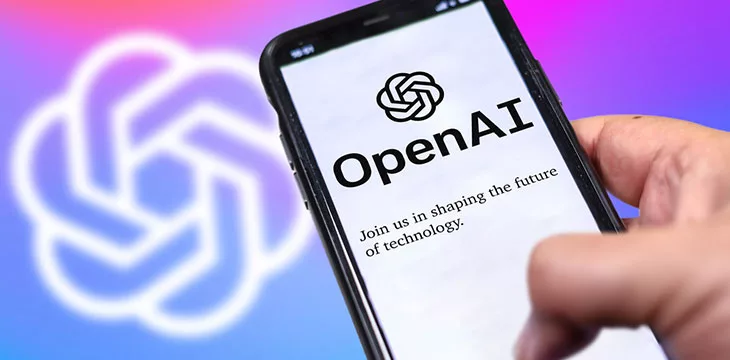|
Getting your Trinity Audio player ready...
|
OpenAI is preparing to release an open-source artificial intelligence (AI) model, a new report has revealed. The open-source model will not compete with ChatGPT, the company’s flagship AI chatbot that has shot to global fame.
OpenAI is responding to mounting pressure to release its own open-source AI model, sources told tech outlet The Information. The timing of the release has yet to be revealed.
While ChatGPT is still the poster child for AI success, open-source models are gaining a foothold rapidly. In February, Meta (NASDAQ: META) gave academics access to its large language model, which is called Large Language Model Meta AI or LLaMA. Weeks later, it leaked online for use by any developer, and it has taken off since.
Ian Stoica, a computer science professor at the University of California, Berkeley, believes that open-source models are the future. These models are now “reasonably close” to proprietary models from OpenAI, Google (NASDAQ: GOOGL), and other industry leaders, he added.
LLaMA remains the open-source model to beat, with researchers citing Meta’s decision to share its weights as the key differentiator. In AI, weights are the parameters a model learns during training. While Google and OpenAI have relied on their elite teams to advance their technology, Microsoft (NASDAQ: MSFT) is relying on the masses, and it’s winning the race.
With AI advances have come a call for responsible development and deployment, with some like Elon Musk, Apple’s Steve Wozniak, and the ‘godfather of AI’ Geoffrey Hinton sounding the alarm on the dangers of the technology.
Blockchain could help solve some of AI’s biggest risks. The first is with data: AI relies entirely on data fed to it. Due to it being immutable and tamper-proof, blockchain can help protect this data and make it easy for users to spot manipulated data. With decentralized identity on the blockchain, authorities can also crack down on those who use AI to spread lies and manipulate the masses.
AI can’t function without data to learn from, making data extremely valuable in the age of generative AI. At some point, those who own data will start demanding compensation for its use by these large language models, a field where blockchain’s micropayment ability would play a big role.
In order for artificial intelligence (AI) to work right within the law and thrive in the face of growing challenges, it needs to integrate an enterprise blockchain system that ensures data input quality and ownership—allowing it to keep data safe while also guaranteeing the immutability of data. Check out CoinGeek’s coverage on this emerging tech to learn more why Enterprise blockchain will be the backbone of AI.
Watch: CoinGeek Roundtable with Joshua Henslee on AI, ChatGPT, and Blockchain

 02-15-2026
02-15-2026 




